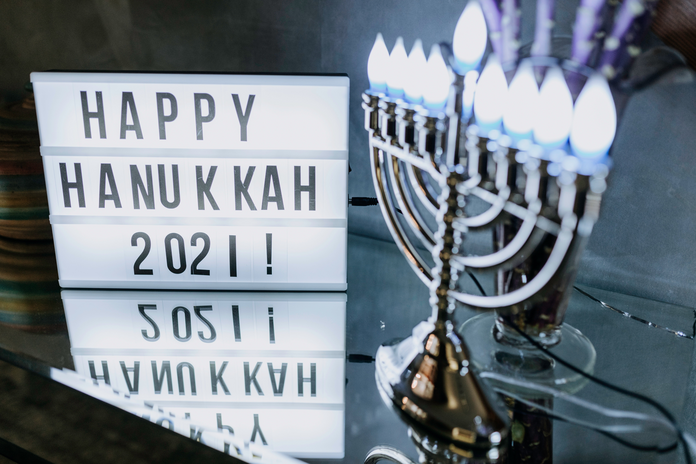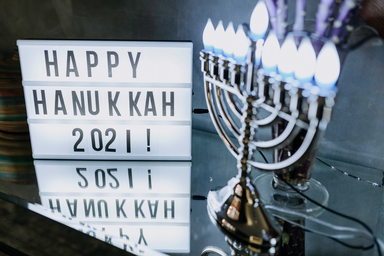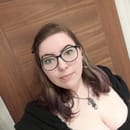It’s that time of year again where the Christmas lights are going up all over the place, and cafes are playing Christmas music on repeat. The world seems to be gearing up for Christmas, but in all the hubbub, there’s another festivity overlooked by most of the population- Chanukah.
Chanukah is a Jewish festival, also spelt and pronounced as ‘Hanukkah’, known as the ‘festival of light’- linking quite well to a lot of Christmas celebrations. This year Chanukah began on Sunday the 28th of November, and as it runs for 8 nights, it will finish on the night of the 5th of December. These dates change every year as it follows the Hebrew calendar, which is a lunar calendar, whereas Christians or non-Jewish people run on a solar, also known as Gregorian, calendar.
Chanukah is a holiday of celebration, commemorating the overcoming of hardship and triumph of the Jewish people. Every Jewish child learns the story of Chanukah when they are young (we still have some board books in our house with the Chanukah story!), but a lot of the details are only told once you are a little older.
THE STORY OF CHANUKAH:
The Chanukah story originates around 2000 years ago when Israel was a part of the Syrian-Greek empire. The ruler of the empire thought that people could not be united unless they were also united in religion, and so he tried to make everyone convert to the same common religion. Jews (and any other religious people) had no choice but to assimilate to his religion, for fear that they would be killed. Alternative religious traditions had been outlawed, and despite the resistance of many, eventually, there was only one area of the kingdom where Jews could still practice their traditions.
This area of the kingdom was the caves and hills of Judea, where a group of rebels called the Maccabees had fled. They worked with Jewish rebels who managed to escape and led the fight against the Syrian troops who had arrived to force them to stop practicing Judaism. Though the Syrians had larger numbers, the Maccabees defeated them and managed to return back home to Jerusalem to help the rest of the Jews practice their religion again.
Once in Israel, they reached the site of the Temple (one of the main sites of Jewish worship), which had been desecrated by the Syrian army. They cleaned and fixed up the inside of the temple, where they also found a menorah which the Maccabees needed to relight.
* A Menorah is a 7-lamp (6 branched) candelabra which is similar to the one used today, the Chanukiah, which is a 9-lamp (8 branched) version.
WHY DID THEY NEED TO RELIGHT IT?
They needed to light the Menorah because in Judaism there is a ‘Neh Tamid’ or an ‘Everlasting Light’, which as the name suggests, must always be on. Nowadays, synagogues like my own have a little electric lantern that functions as an Everlasting Light, but 2000 years ago, they only had oil to light it. When the Temple had been destroyed, the Menorah had been knocked over, and nearly all of the oil had drained away. There was only enough left for one day…
They lit it anyway, deciding that one day would be better than nothing, and sent for more oil, which would take 8 days to arrive. The miracle that we celebrate at Chanukah is that the oil which should have burned for one day stayed burning for all 8 days until more oil came.
So, to celebrate Chanukah, we now light candles, just like Jewish people did 2000 years ago. In fact, if you’ve been anywhere around Bristol’s town centre recently, you might have seen a giant Chanukiah standing on College Green, in front of the Town Hall. It’s about 10 foot tall, so a bit larger than the ones you might spot in a friend’s home, but it’s the same principle!
Every night a new candle is lit, in addition to the previous one, until all 8 candles are lit on the final night. There is a ninth candle, usually in the centre, called the ‘Shamash’ (or ‘teacher/servant’), which is used to light the other candles every night.
Chanukah is also about celebrating the miracle of the oil, and so the traditional food for Chanukah is any fried food, like donuts or latkes (think even tastier hash browns!). Every night, we say a blessing for the candles, sing a traditional Chanukah song, and then exchange gifts with one another as well.
When I was younger, our parents would give me and my two siblings presents every night, but as we got older, we each started taking a night to give out presents to everyone else. There is also a game that can be played with a dreidel (a little spinning top) where you gamble ‘gelt’ (chocolate coins) and depending on what face the dreidel lands on, you might win or lose some of your chocolate coins. That game tends to end when the first person gets bored and starts munching on their money!
Chanukah is probably one of the cheeriest festivals around, and if you have a Jewish friend, try wishing them a ‘Happy Chanukah’ or ‘Chanukah Sameach’ (the Hebrew version). If you have the chance you can eat a donut in celebration as well!


